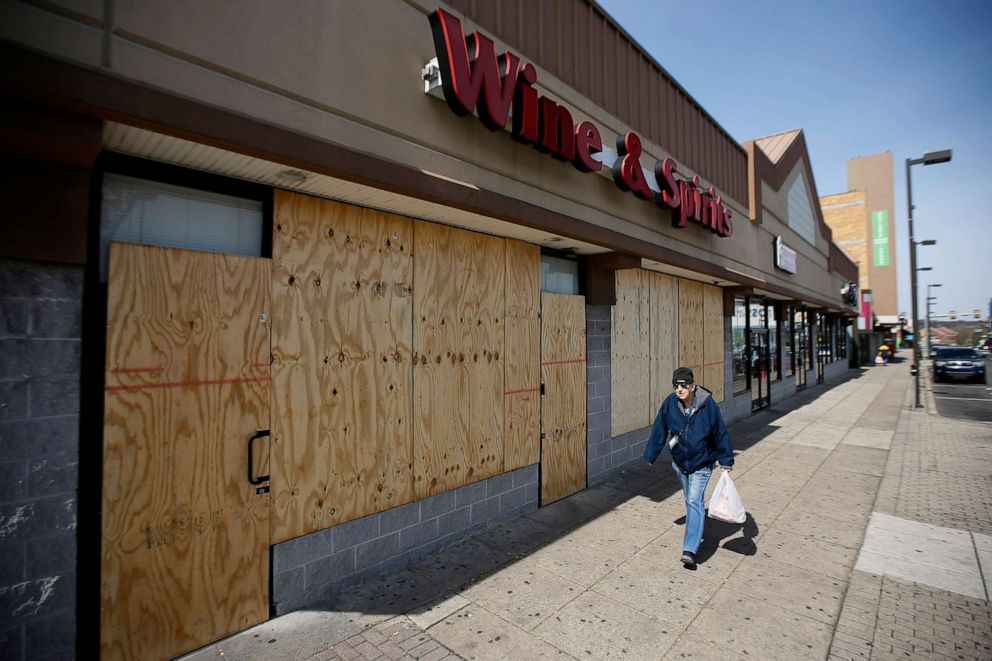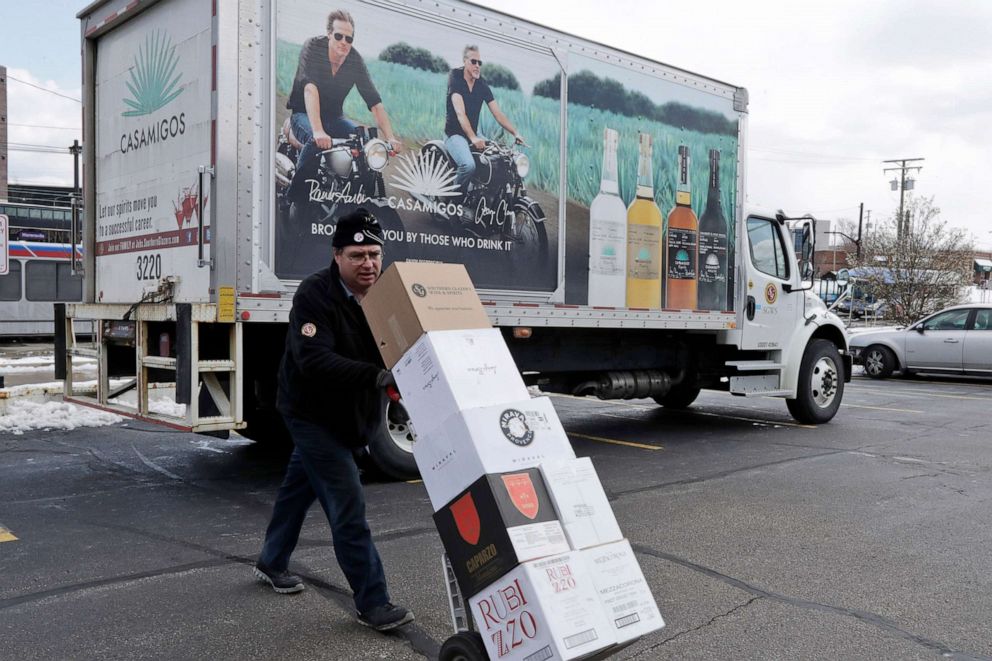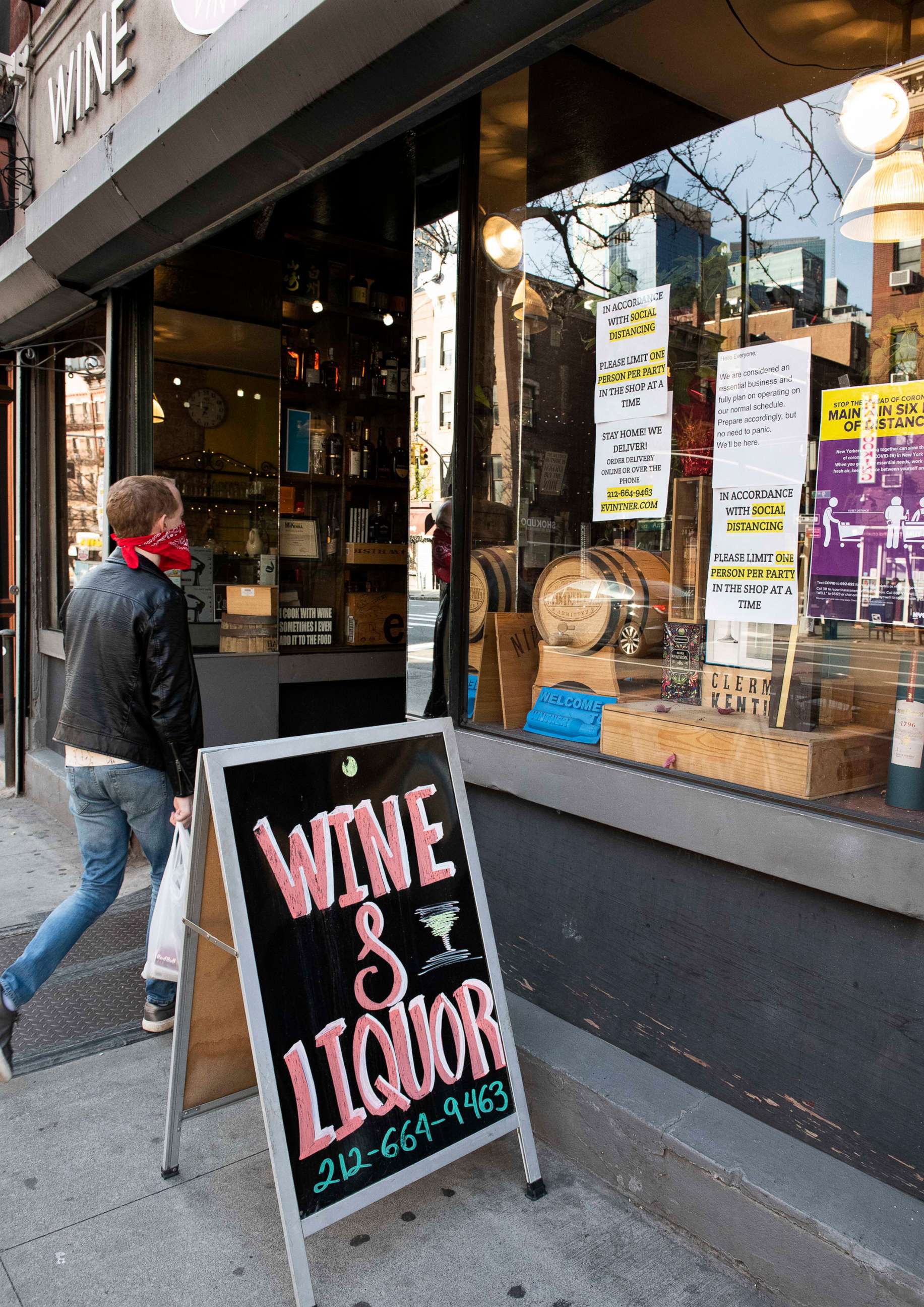How coronavirus is causing confusion with states' alcohol laws
Reports of consumers crossing state lines to buy drinks has leaders worried.
As the coronavirus outbreak hit the U.S., many states changed laws and regulations related to alcohol. Now, however, those changes between states have created a confusing scene for consumers and retailers over the last few weeks, and experts say leaders need to work together to avoid bigger problems.
While 40 states with shelter-in-place orders have deemed liquor stores and other shops that sell alcohol essential businesses and allowed restaurants to deliver alcoholic drinks, some states, like Pennsylvania, have shut down their brick-and-mortar liquor stores during the pandemic. In some cases, the closures have resulted in shoppers seeking beer, wine and spirits to cross state lines -- potentially putting themselves at health risk to stock their shelves.
"It's almost like a trade war, but it's driven by health care," Michael D Belsky, the executive director of the Center for Municipal Finance at the University of Chicago's Harris School of Public Policy, told ABC News.
Belsky and alcohol industry experts say the different regulations need to be sorted out soon to provide a balance of economic boost and safety. At the same time, experts say some of the new rules put in place could be a sneak peek of post-coronavirus regulations that would benefit the state, sellers and consumers.

Pennsylvania's alcohol laws mandate that any wine or spirits be sold through state-run stores, but since the governor issued a shelter-in-place order, residents can only purchase those bottles through a state website. Residents living close to the state's borders, meanwhile, have flocked to West Virginia, Ohio, New Jersey and other locations where liquor stores were still open.
Reports of huge crowds waiting in line to purchase alcohol prompted both Ohio and West Virginia to issue new rules that mandated only residents with state-issued ID can purchase products from alcohol stores.
Tune into ABC at 1 p.m. ET and ABC News Live at 4 p.m. ET every weekday for special coverage of the novel coronavirus with the full ABC News team, including the latest news, context and analysis.
Michael Bilello, a spokesman for the Wine & Spirits Wholesalers of America, a trade group that represents over 400 wholesalers across the country, told ABC News distributors are worried that the different regulations could lead to more black market sales.
"We need to look at the lessons learned from Prohibition: When you shut down consumer's access to alcohol, they will find other ways," he said. "The states that kept wine, spirits and beer sales going are giving consumers access to safe products."

Belsky, who is also the former mayor of Highland Park, Illinois, said lower alcohol sales are going to eat into state revenue collected from taxes. He noted that Illinois' government takes in $300 million annually from its alcohol sales, and without restaurants and bars open for businesses, it's losing revenue needed for services.
"The state laws have been written in a way to regulate alcohol use that it's not so readily available, but people's behaviors are changing now, and that might change their expectations," he said.
Belsky said state governors have been doing a good job coordinating public health policies -- such as uniform education closures and stay-at-home orders -- but some needed to take a strong look at their alcohol and other commerce sale policies.
"I think in any public policy, you need to have a balanced approach," he said. "No one wants to endanger the health of their constituents, but at the same time you risk everyone's health if they're going to the state border to buy alcohol."
The National Association of American Wineries released a study in March that said the average winery lost $37,376 in sales that month. Bilello said there is some offset from the losses of brick-and-mortar locations, especially in the states that are allowing alcohol delivery options, such as New York and New Jersey.

Apps like Drizly and Postmates, which are offering alcohol delivery from stores in certain states, have seen an increase of use, and customers are getting accustomed to this new convenience, according to Bilello.
"We think this is a great thing and it shows we can properly sell our products this way and vet our customers are purchasing safely," he said.
What to know about coronavirus:
- How it started and how to protect yourself: Coronavirus explained
- What to do if you have symptoms: Coronavirus symptoms
- Tracking the spread in the U.S. and worldwide: Coronavirus map
Belsky said these relaxed regulations for alcohol sales distribution could lead to changes in state regulations in the long-term since governments are looking for ways to rebound the economy. He did also note that as the pandemic continues, states will have to keep an eye on consumption and its effect on public health.
"You can gain in the economy but you may have to spend more when it comes to alcoholism," he said.




